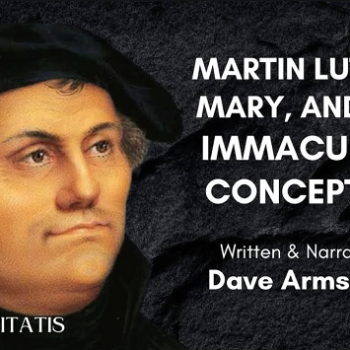Yet what made Bill so special to me, and to many like me, was the humble faith and profound wisdom he showed in the midst of suffering. I left his office that morning thoroughly humbled, knowing for certain that I had just spoken with a man far better than I could ever hope to be, and moved by the privilege of sharing in his struggle.
Our interview, "You Will Call, I Will Answer," was widely read and widely shared. It was cited at numerous legal and political blogs, including Powerline, Instapundit, Hot Air, the Volokh Conspiracy, and TaxProf Blog. (Dean Martha Minow even quoted the interview in her statement to the HLS community yesterday.) Ashby Jones, at The Wall Street Journal, comparing it to Randy Pausch's famous "Last Lecture," called it "a raw and unvarnished portrait of a man staring at death and pondering, in a very open way, his faith in the light of that fact." It "stops you cold," he said, and is "as compelling as anything we've come across in some time."
The compelling nature of the interview had nothing to do with me, of course, and everything to do with the humble, searching, and wrenchingly honest soul that shared the room with me. We spoke of the excruciating words of well-meaning friends. "Hearing repeatedly that suffering is discipline from a loving Father" has made him "feel sometimes as though God were coming after me with a baseball bat." Yet this made worship impossible. He could not "hear and absorb those messages and then also think that the God of the universe actually loves me. I got close at some points . . . to seeing God as having declared himself my enemy. It's hard to worship your enemy."
Bill could not call his suffering good. He was pained in particular by its consequences for his family. As he said in a video interview (posted below), "It's vastly easier to experience this disease than to see the people you love most in the world grieve over it." The treatment for cancer, he said, was brutal and violent, pumping poison into your body, and he no longer enjoyed the intellectual dexterity he once did. It broke his heart that he would never hold a grandchild or grow old with his wife Ruth. But Bill explained in our interview the many ways in which God had used his suffering for good. It had made him a better listener, and a better husband, father, and friend. "I love better than I did before." His chronic pain and cancer had become such a deep part of his identity that he no longer knew how to live without them. And death's "hourglass" in front of him had made him focus on the living. "Many people die . . . without any opportunity to prepare. I have been given the opportunity to finish some work . . . and to do things for my children that I might not have done [otherwise.] Those are incredible gifts."
My favorite answer came when I asked whether he was pleased with the life he had lived:
No. I'm not displeased in the sense that I never got to see that or do this or enjoy something else . . . I am utterly satisfied with my life in those terms. I have gotten many more good things than I could deserve in any conceivable way. I have been incredibly more blessed, along multiple dimensions, than I would have imagined . . .
What I am displeased with is my own living of life. I feel an acute sense that I ought to have done better with the circumstances I was given . . . I find it so very, very easy to believe in a God who is profoundly disappointed in me.
It seems utterly natural to believe in the Disappointed God, because I myself am disappointed . . . How could he not be disappointed? That makes complete sense to me. It's the other God, the God who does not experience that kind of disappointment, the God who sees me the way that Prodigal Son's father saw him—that is the harder God for me to believe in. It takes work for me to believe in that God.
Since you can read the rest of the interview for yourself, I will finish by pointing to Bill's testimony at Boston's Park Street Church. God, he said, had given three gifts to sufferers.





